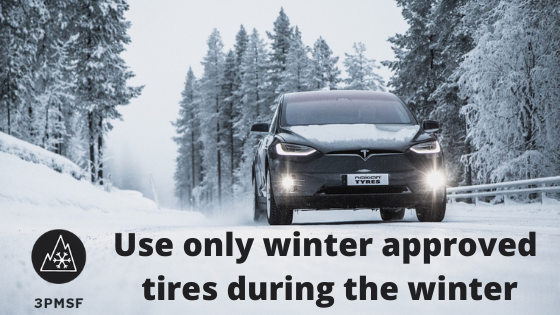The larger the vehicle is, the heavier it will be. It will be heavier than a regular passenger car, therefore it needs different tires than a normal passenger car. It also puts pressure for the need for good quality tires. It is important to choose tires that allows for good stability and grip. The tires also need to protect against hydroplaning as with the additional weight of an SUV the effects of hydroplaning can be disastrous. This is because hydroplaning is a phenomenon where the vehicle rides up on a thin surface of water and loses contact with the road surface. The best way however to protect against hydroplaning is to equip your car with a set of good quality tires.
You need to have the right dimension of tires as well as the right seasonal tire. There are basically 3 different types of tires for SUVs, that is all-season tires, all-weather tires and winter tires. All-season tires have to be alternated with winter tires if you will drive in winter conditions and here it is important that the winter tires are always used in slippery conditions that include snow, slush and ice. You can also use winter approved all-weather tires during these slippery conditions and here you can then use the same tire all year round. All-season tires are not to be used in winter conditions and yes, you always need winter approved tires when during in winter conditions. Even for your an SUV, that have rugged all-season tires.
It is important to keep tires properly inflated with at least 5/32 inches of tread to assure proper hydroplaning prevention protection. Tires like the Nokian eNTYRE C/S, which are new all-season tires from Nokian Tyres, are premium quality tires that come recommended for SUVs and light trucks. These tires have many safety features and even has a driving safety indicator and a hydroplaning indicator on the central rib. This hydroplaning indicator droplet disappears when the groove depth wears down to less than 5/32 inches. The reason the tread depth is so important is as the speed increases and the tread depth decreases the contact area of the tire is dramatically decreased. You also have lower volume to hold and channel the water to the sides.
Hydroplaning does not just pertain to water you can also have slushplaning with wet snow, i.e. slush, which happens when the snow starts melting leaving slush on the road. The SUV all-weather tires allow for excellent handling on snowy, icy and slushy roads and provide protection for slushplaning. In a similar way it is important that your winter tires are able to cope with and prevent slushplaning. When you choose SUV winter tires this should be a taken into account.
When you select winter tires the quality is again of highest importance, as you need to have very good quality tires to cope with the challenging driving conditions that exist during the winter season.
For more information regarding tires for SUVs, visit: nokiantires.com
